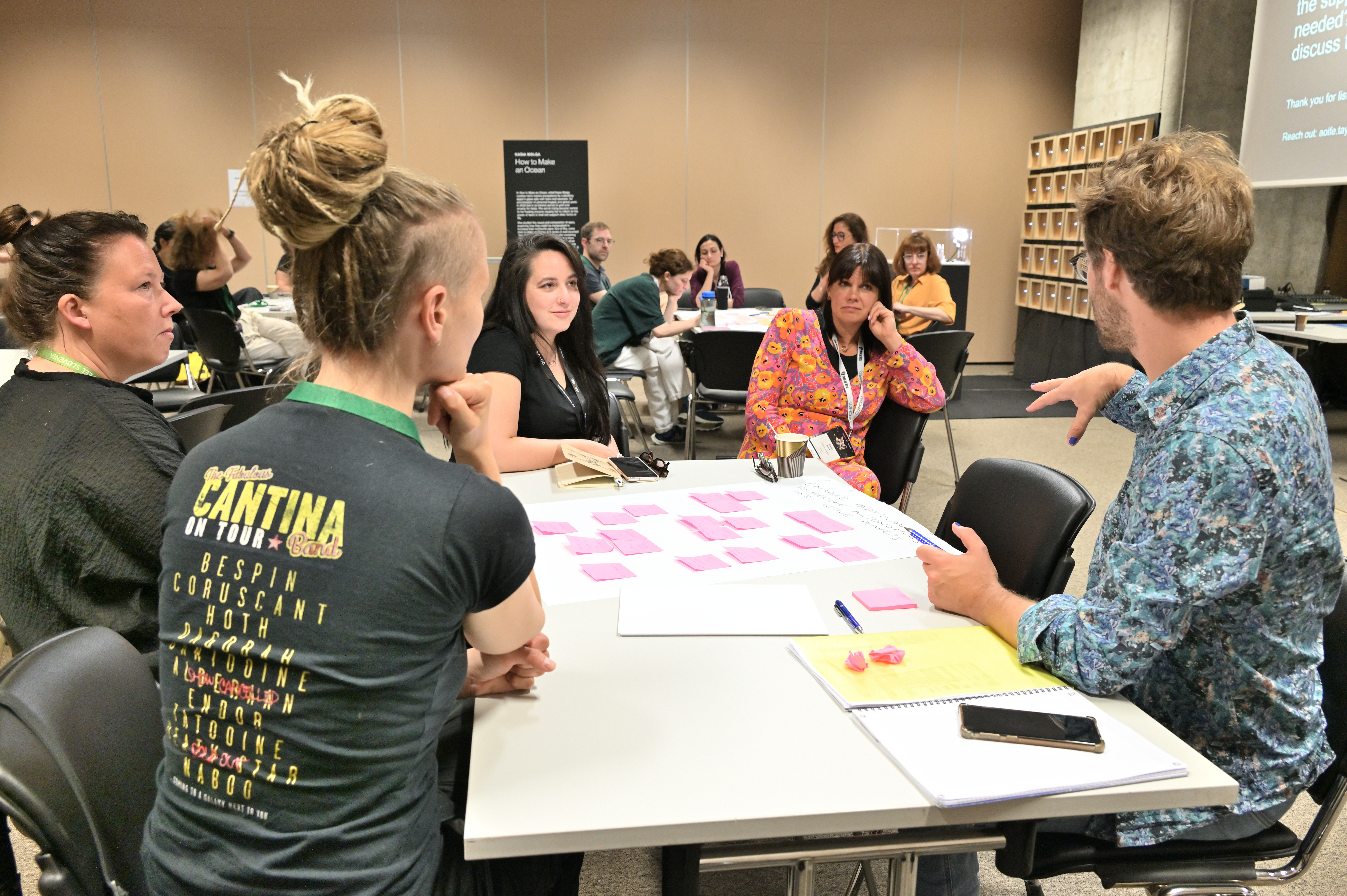
Training is key!
Simona Cerrato
June 17, 2024, 8:33 a.m.
This is the straight conclusion of the workshop Let’s imagine training for facilitators in citizen science projects! held at the Ecsite conference 2024 (Ljubljana, 5-8 June 2024) facilitated by Catherine Oulian of the Ecole de la médiation Universcience (Paris), Aouife Taylor of the Trinity College Dublin, Claudia Aguirre and Paul Boniface of the association TRACES (Paris), and myself, representing the ECS project and ECSA.
The Ecsite conference is one of the major gatherings of the science centres, science museums and public engagement communities, organised every year in a different location. Ecsite brings together more than 320 organisations all committed to inspiring people with science and technology and driving science engagement forward with professional events, projects and publications.
Citizen science and participative science aim to give citizens their place in the production of knowledge and are striving to become a mainstream approach to scientific research well beyond the classical topics connected to environment and biodiversity, including ecology, astronomy, medicine, computer science, cartography, statistics, psychology, genetics, engineering, neuroscience, biochemistry, air or sea pollution monitoring, high energy physics, mathematics.
Despite being very promising and powerful approaches, citizen science and participative science face many challenges, such as reliable data, recruitment, motivation, participation of citizens or reluctance to use this approach by scientists and researchers.
A key solution to some of the challenges the field faces is developing the skills needed to facilitate citizen science projects. Overall, addressing the skills gap in citizen science facilitation can significantly improve project outcomes and contribute to the field's overall success. Indeed it is essential to create the conditions for dialogue and work for all stakeholders (research teams, citizens, partners, schools, libraries, associations...). These stakeholders need support to create together, transform their perspectives, adapt tools to their context, stay involved, and understand each other in depth. What specific skills, knowledge and attitudes do facilitators need for participatory projects? Could a training programme in facilitation and participation help?
The workshop Let’s imagine training for facilitators in citizen science projects! offered feedback from institutions involved in citizen science and in (inter)mediation or facilitation training.
The ECS project contributed to the workshop by communicating some training needs, identified with our community, as part of the ECS project, and its work in developing an European Citizen Science Academy (ECS Academy):
Citizen science: general introduction to the citizen science and other participative research methods for researchers, students, staff members, media officers, librarians of all faculties
Impact: how to evidence impact (e.g. social, scientific, institutional)
Data and publications: how to assess quality data and publications, and guarantee appropriate coverage
Ethics and intersectionality: how to accommodate ethics and intersectionality between citizen science and other areas such as open science, open access, gender, non-discrimination and inclusion in research
Infrastructure: how to design and maintain them
Policies, guidelines, fundraising: how to establish clear and operational guidelines for the development of resources that are problem-based and provide active learning opportunities
Roadmaps: how research organisations can implement citizen science
Private companies: how to engage and collaborate with private companies as stakeholders, actors or service providers.
These trainings needs inform the ECS Academy and so far, the it has:
Mobilisation of researchers and trainers
developing a training on 'how to organise a citizen science summer school'
bi-monthly meetings- talk about needs in relation to education and training
meeting organised to share experience on how to organise a citizen science course in an undergraduate/master's level university curricula
Dissemination of existing resources
through the eu-citizen.science platforms, meetings, publications, events
Connections with community hubs (museums, maker spaces, libraries).
If you want to know more about the ECS Academy , watch the recording of the webinar ECS project showcase: Sharing insights and facilitating dialogue in citizen science held in March this year.
Citizen science is one of the best ways to make science open, accessible and valuable for everyone. Let’s work together to make it happen.
Written with the collaboration of Cléa Montanari, Learning Planet Institute.